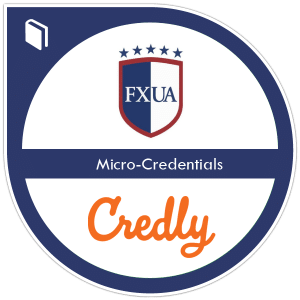EXPLORE OUR PROGRAMS
BACHELOR'S DEGREES
FXUA MICRO-CREDENTIALS
Traditional higher education degrees tell employers what you have done. Micro-credentials tell employers what you can do – specifically, what you can do to make them more successful. At FXUA we applaud completion of an academic journey but, moreover, enthusiastically celebrate those specific and measurable competencies that you can visibly bring into the workforce. This is the unique difference that FXUA can bring to you. Visit the Office of Micro-Credentials page to learn more.
Business First
FXUA has taken a very different approach to higher education by focusing on a “business first” pledge. Our goal is to ensure that you are taught by educated practitioners, not academic theorists, and provided with near limitless access to national and international business leaders throughout your entire academic journey. Long before you graduate, you will have shaped several new prosperous roads that lead to lifetime career success – guided and mentored step-by-step by the very best the business community has to offer.










